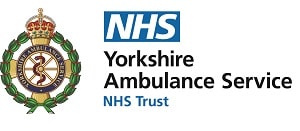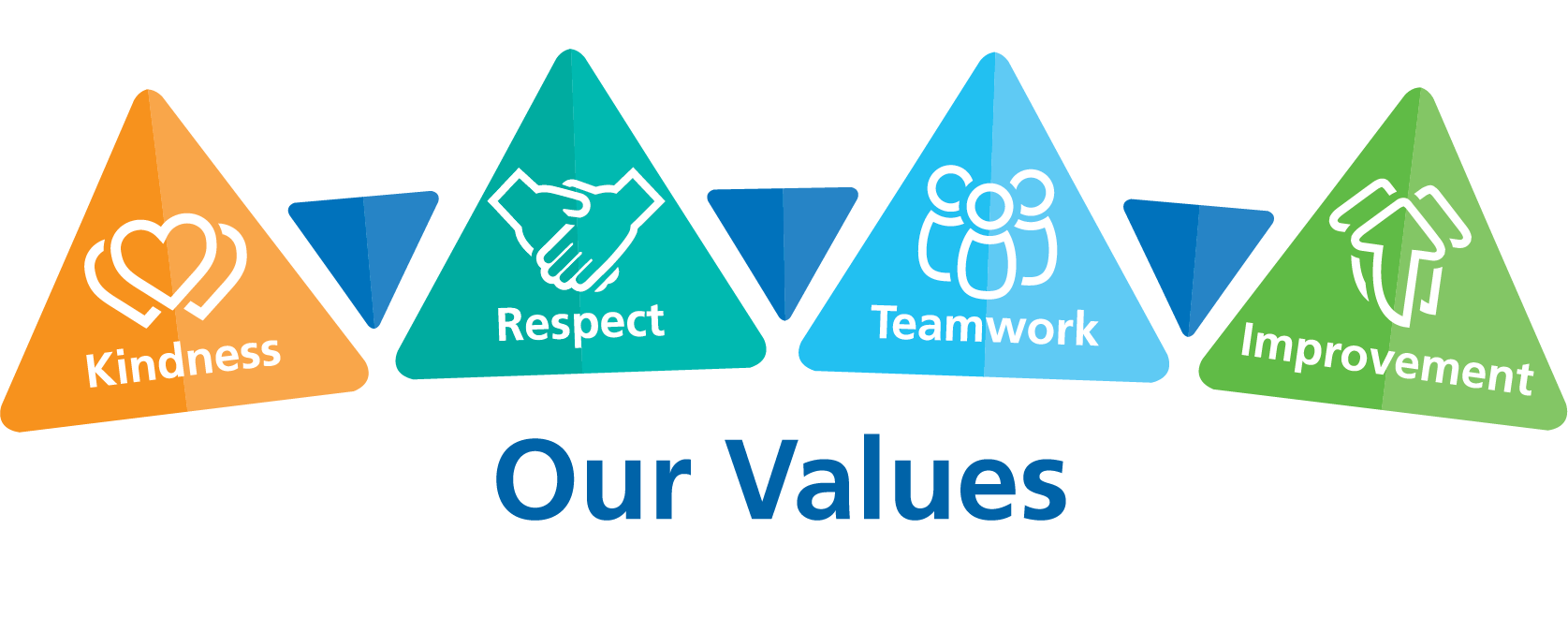Celebrating our paramedics on International Paramedics Day
04 July 2025

International Paramedics Day on 8 July is a great opportunity for Yorkshire Ambulance Service (YAS) to pause and reflect on the extraordinary contribution of its paramedics and frontline responders.
This year’s theme ‘unity and community’ perfectly encapsulates the collaborative spirit of our 2,165 paramedics who play a pivotal role in the health and wellbeing of our communities and work alongside crew members and colleagues to achieve real impact and deliver excellent patient-centred care. They were involved in responding to around 900,000 emergency incidents across Yorkshire in 2024-25.
Paramedics are often the first healthcare professional many people encounter in their most vulnerable moments. It’s a role that not only demands exceptional clinical skill and rapid decision-making but also compassion, resilience and adaptability.
Dave Green, Chief Paramedic at Yorkshire Ambulance Service, said: “Paramedics are highly skilled autonomous clinicians who provide essential care in challenging and often unpredictable circumstances. Their role is far-reaching, from quickly evaluating complex situations, identifying life-threatening conditions and formulating immediate treatment plans to coordinating with other emergency services at complex incidents.
“In recent years, the paramedic role has evolved significantly, with clinicians increasingly providing ‘see and treat’ and ‘hear and treat’ care, preventing unnecessary hospital admissions and referring patients to alternative and more appropriate community services. This expanded scope highlights their expertise and their crucial role in managing the wider demands of the NHS.”
The landscape of pre-hospital care is constantly evolving, driven by innovation and a commitment to improving patient outcomes. Yorkshire Ambulance Service paramedics are at the forefront of these advancements which include:
- Telemedicine integration - the ability to consult with doctors and other clinicians in real-time, providing enhanced guidance and support for complex cases. One example is the roll-out of stroke video triage at Hull Royal Infirmary which connects ambulance crews with specialist stroke clinicians by video call, allowing the hospital assessment to take place earlier in the patient journey.
- Enhanced trauma care - new equipment and protocols for managing severe injuries, improving chances of survival and recovery. We now have 45 Specialist Paramedics in Critical Care who have undergone advanced training to manage and treat patients in life-threatening emergencies. We have also introduced a Medical Emergency Response Incident Team (MERIT), made up of a Pre-Hospital Consultant and a Specialist Paramedic in Critical Care, to support major incidents and provide enhanced clinical care to patients on a more routine basis.
- Development of alternative care pathways - this ensures patients receive the right care at the earliest point in their healthcare journey. One example is linking with mental health crisis teams, hospital-based mental health units and local safe spaces across the region to connect mental health patients with the right team as soon as possible after their contact with 999, avoiding unnecessary ambulance dispatch and attendance at an emergency department where this isn’t clinically appropriate for the person’s needs.
- Electronic patient records - streamlining documentation and ensuring seamless information transfer between ambulance clinicians and hospital teams which improves continuity of care.
International Paramedics Day takes place every year on July 8 because this marks the anniversary of the birth of Dominique Jean Larrey, the French military doctor who became Napoleon Bonaparte’s chief surgeon of the Grand Armee and the man often referred to as the 'father of modern-day ambulance services.'
Paramedic stories of life on the frontline
Paramedic Team Leader
Launch of Yorkshire MERIT

Paramedic Team Leader Greg Morley
Greg is a Paramedic who works as a Team Leader, looking after 30 frontline staff in Hull. His role covers everything from co-ordinating annual leave requests and helping to resolve any fleet or equipment issues to managing large-scale emergency incidents and looking after staff welfare.
He said: “My role is varied; one minute I could be speaking to a colleague about our New Parent Support Employee Guidance document, the next I could be attending a four-car road traffic collision with multiple patients, helping to coordinate resources and liaising with partner agencies.
"I am often the first resource on scene and I enjoy making that clinical assessment and providing the first-line treatment, so when the crew arrive they can take over caring for a patient who is hopefully in a more stable condition.
“I can attend a lot of challenging incidents to support crews and enjoy being able to support staff with my experience and oversight and provide that calmness for staff who may be experiencing a traumatic incident for the first time."
Social Prescribing for Mental Health Patients

Specialist Paramedics in Mental Health on placement at Turning Point
Steve, one of our Specialist Paramedics in Mental Health, has completed a social prescribing placement at Turning Point Talking Therapies in Wakefield.
Social prescribing connects individuals to community resources, focusing on their unique needs and goals. It complements therapy and medication, promoting recovery, wellbeing and person-centred care during mental health crises.
“Social prescribing improves a service-user’s health and wellbeing, and helps to save money by reducing reliance on other services when their needs are unmet,” said Steve.
Paramedic Develops Community Pathways

Paramedic Kaitlynn Trotter
Kaitlynn is a Paramedic in Bridlington and spent three months developing healthcare pathways in Hull and the East Riding so patients can receive more appropriate care in the community where possible, avoiding unnecessary hospital admission.
These included providing certain Chronic Obstructive Pulmonary Disorder patients with specialist respiratory care in their own homes, giving patients direct admission to a deep vein thrombosis clinic in Hull and enabling patients with diabetic ulcers and wounds below the ankles to receive a home visit from a community podiatry team.
Kaitlynn said: “I found the work particularly rewarding as it meant certain patients did not need to be taken to a hospital emergency department and could be given enhanced care in the community that was more appropriate for their needs.”

Members of Yorkshire MERIT
We now have 45 Specialist Paramedics in Critical Care who have undergone advanced training to manage and treat patients in life-threatening emergencies. At the beginning of the year we launched the Yorkshire Medical Emergency Response Incident Team (MERIT), made up of a Pre-Hospital Consultant and a Specialist Paramedic in Critical Care.
The team, based out of Leeds, attends incidents involving critically ill and injured patients, which may be major trauma, medical or surgical, obstetric, paediatric or psychiatric.
The team is able to deliver a full range of critical care interventions, including pre-hospital emergency anaesthesia and surgical procedures such as resuscitative thoracotomy and resuscitative hysterotomy, as well as carrying blood products and advanced pharmacological agents. As well as delivering care to patients, the team provides supervision and mentorship for crews working at incidents alongside them as well as telephone support and also provides a key role at major incidents.
During the first 80 days, MERIT was despatched to 375 incidents and attended three large scale incidents as the Medical Advisor and Operational Medical Advisor. The team used their advanced interventions 76 times including emergency anaesthesia, sedation, surgical procedures, advanced pharmacology and the administration of blood products.
Support for Falls Patients

Specialist Paramedics in Urgent Care with Rotherham's Urgent Therapy Team members
Our Specialist Paramedics in Urgent Care have been working with the Community Hospital Avoidance Team and Urgent Therapy Team in Rotherham to improve outcomes for patients who have fallen and prevent unnecessary transfers to emergency departments.
Patients who call 999 because of a fall are identified as suitable for intervention by our SPUCs and the Urgent Therapy Team which do both joint and independent home visits, depending on the needs of the patient.
SPUCS can offer advanced clinical assessment and examination, wound closure and provide medication including pain relief and antibiotics. The Urgent Therapy Team can provide mobility aids and necessary equipment, rehabilitation support and involve other community services where necessary, as well as do a full set of observations, use a Mangar lift to help patients off the floor and make referrals for grab rails.
Ruth Sharkey, Advanced Paramedic Urgent Care, who has been involved in the development of the pilot, said: “This is a great example of how we can work collaboratively to avoid hospital admission and provide improved patient care and experience as well as helping to prevent further falls.”
One patient who benefited from the pilot was a 91-year-old who sustained a head injury after a fall at a care home. Upon assessment of the call, a SPUC was dispatched to provide wound care and advanced clinical assessment. The Urgent Therapy Team also attended and following assessment identified the need for a new walking aid, which was delivered the same day alongside ongoing therapy. Care home staff continued to monitor the patient in line with the YAS head injury advice leaflet. This intervention meant the patient did not need to be admitted to hospital.
The pilot is now being reviewed to see how it could be implemented permanently and rolled out to other areas.
Support for Mental Health Patients
We have 27 Specialist Paramedics in Mental Health who work on both our mental health response vehicles and in our Emergency Operations Centre (EOC). They provide face-to-face support for patients and remote support for crews and patients in the EOC. The introduction of nine mental health vehicles means that most of our mental health patients can now be looked after on scene or signposted to local mental health support pathways which has resulted in fewer admissions to hospital emergency departments. In 2024-25, our mental health response vehicles attended 7,587 jobs, of which 548 involved under 18s.
Two of our Mental Health Paramedics, Carlos Kershaw and Steve Hughes explain more about their role in the video below.
Urgent Care Paramedics Work to Prevent Unnecessary Hospital Admissions
We have 159 Paramedics and Nurses specialising in urgent care who look after patients who have called 999 but do not have immediately life-threatening injuries or illnesses. Often these patients can be treated in their own home which prevents unnecessary admission to hospital and frees up ambulances to deal with our most critically-ill and injured patients.
Simon Mangeolles is a Specialist Paramedic in Urgent Care (SPUC), currently based at a GP surgery in Leeds, where he plays a key role in managing patient care. Alongside his clinical responsibilities, he supports our Emergency Operations Centre by reviewing 999 calls to identify cases appropriate for fellow SPUC intervention.
Simon undertakes urgent care work within Yorkshire Ambulance Service, where he is trained to carry out advanced clinical assessments and provide treatments such as wound closure and the dispensing of medication such as antibiotics and controlled drugs for pain management, with the primary aim of preventing unnecessary hospital admissions. He further contributes to frontline care by responding to emergency calls in a dedicated ambulance response vehicle.
Find out more about his role in the video below.
Next Generation of Paramedic Heroes
Yorkshire Ambulance Service currently has 519 Newly Qualified Paramedics working across the region who have completed a degree in paramedicine and then go through a structured two-year period of consolidation, which includes mentorship, clinical supervision, professional development opportunities and placements before they become fully-fledged paramedics.
Kit von-Mickwitz, acting Lead Paramedic for Clinical Development, explains more in the video below.
Produced by: Corporate Communications Department

